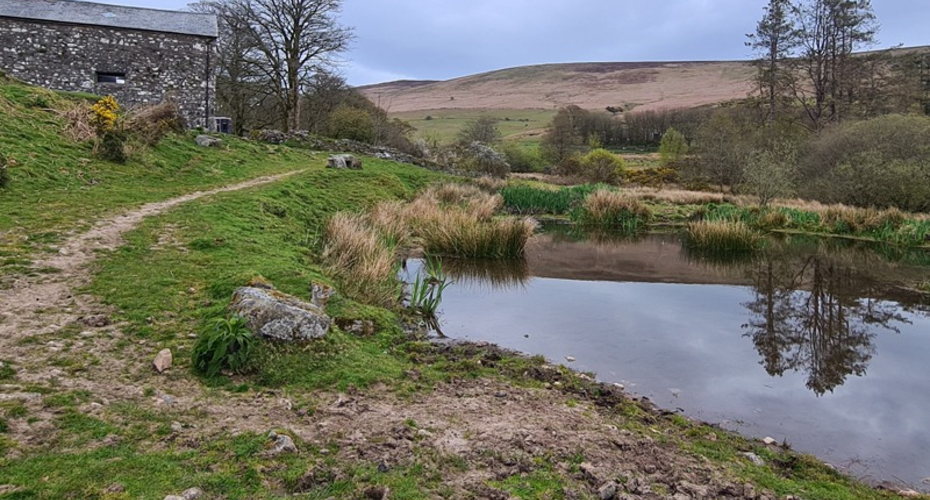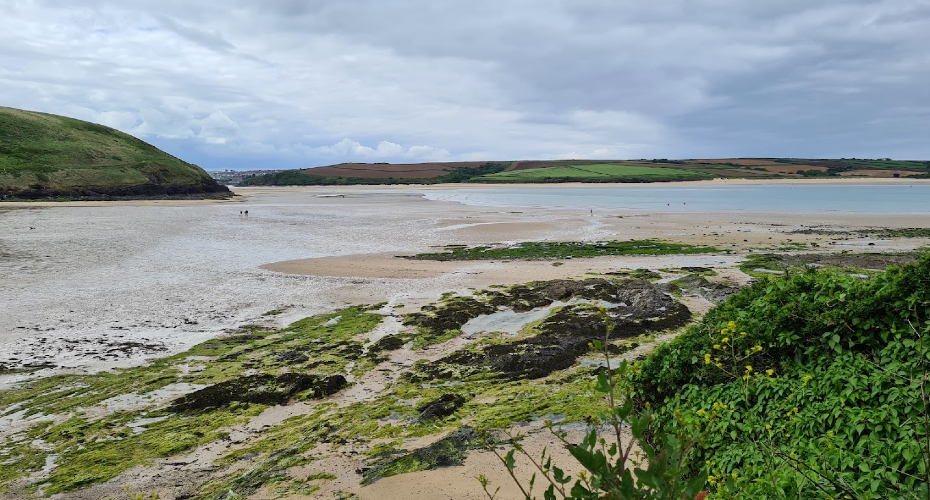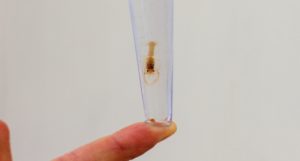Nature rich landscapes in Devon and Cornwall selected for two major new artist commissions with the University of Exeter and Natural England

Left to right: Richard Chappell, Saili Katebe, Xenia Glen, Antosh Wojcik
A pair of iconic, nature rich landscapes in Devon and Cornwall have been chosen to be both host and inspiration for two new community arts commissions.
Challacombe Farm on Dartmoor and the Camel Estuary near Wadebridge will become home to four resident artists, who will work in tandem to create new work and opportunities for local people that connect nature and heritage.
The locations have been selected by this year’s Leeside creative collaboration between Natural England and Arts and Culture at the University of Exeter and will involve a wide range of academics and officers from both organisations as well as a host of other stakeholders.
The commissions will run until July 2025, and are designed to improve community engagement in the management of the protected sites, which in turn, will hopefully inform future policy on strategies applying to these special areas.
Professor John Wedgwood Clarke, Academic Director for Arts and Culture (Devon), at the University, and an acclaimed author whose work draws upon place and ecology, said: “We are delighted to be able offer two substantial arts commissions funded in partnership with Natural England for practitioners to explore the layered history of these two protected sites, their place in the hearts of local communities, and the future they have in a rapidly changing world. Now, more than ever, we need to generate and renew meaningful bonds between people, places and biodiversity that sustain us, and the arts are crucial to revealing the wonder and complexity of those relationships.”
Eirini Saratsi, Senior Specialist Social Science at Natural England, said “We are excited to be partnered with Arts and Culture in Exeter and to work with creative practitioners to explore what matters for people and nature. Protected Site Strategies aim to form new local ‘Nature Collectives’ which will help address pressing environmental issues such as pollution in our rivers or loss of peatland, an essential carbon storing habitat, and allow for harmonious coexistence of people and the rest of nature. This research will contribute to the roll out of Protected Site Strategies in coming years. Insights from the Leeside project will be distilled in the Advisory Guidance for Protected Site Strategies, which will be published in 2025.”
The first site is Challacombe Farm on Dartmoor, a place recorded in the Doomsday Book and later in documents written in 1244 and 1303. Covering 200 hectares, it is both in the Dartmoor National Park and part of the Duchy of Cornwall Estate.

The farm is owned and run by Naomi Oakley and Mark Owen, who apply sustainable farming practices, producing grass-fed and certified organic beef and lamb, “whilst conserving and enhancing the wildlife, landscape and archaeology that makes it such a special place”.
Leading the creative work at Challacombe will be critically acclaimed choreographer and artistic director Richard Chappell and award-winning poet Saili Katebe. Together they will use poetry, dance and film, along with participatory events with local communities, to explore themes of care, renewal and resistance, weaving together the ecological and cultural significance of Challacombe’s landscapes.
Richard Chappell said: “Saili’s passionate way with words will richly capture community voices and the history and ecological importance of Challacombe Farm. His words dance and I can’t wait to dance with them.”
The second chosen location is the Camel Estuary in Cornwall, a Site of Special Scientific Interest (SSSI) and Special Area of Conservation spanning 600 hectares. Its varied geology and diverse soils support a wide range of habitats and species, many of which are nationally and globally significant including the European eel, and several types of wading birds.

Filmmakers Xenia Glen and Antosh Wojcik from Dorset-based Sleepwalk Studios will be exploring the Camel Estuary’s cultural and environmental heritage through community centred filmmaking. They will create a film that highlights both traditional and modern conservation efforts while illustrating the local community’s evolving relationship with the estuary. They’ll also be developing an archive collection of film, photography, and other documentation for future use by artists and researchers.
Xenia Glen said: “We were drawn to this commission by the opportunity to meet people local to the Camel Estuary area and to explore the extensive archive of footage and images documenting this unique part of the country.”
Throughout both projects, there will be opportunities for the communities surrounding Challacombe and the Camel Estuary to engage with the artists and the environmental, historical and cultural significance of both sites.
Sarah Campbell, Associate Director for Arts and Culture at the University, said: “I’m so thrilled to be partnering with Natural England on this project and bringing our expertise in Arts and Culture to the collaboration. Ultimately, our shared goal is to serve the diverse communities who live on and near these natural environments and encourage new ways of connecting with nature and heritage through the arts.”
“This project is a wonderful example of interdisciplinary collaboration, highlighting the wealth of research opportunities fostered at the University of Exeter,” added Professor Krasimira Tsaneva-Atanasova, Vice-President and Deputy Vice-Chancellor for Research and Impact at the University. “The Arts and Culture team has a strong record of supporting innovative and inspirational cross-disciplinary initiatives, bringing together creative practitioners and researchers to tackle global challenges and contribute to a cleaner, greener, and fairer world. This project is no exception. We are excited to continue our fruitful research partnership with Natural England, building on our shared commitment to creating lasting, positive change.”
These commissions have been jointly funded by Arts and Culture, University of Exeter and Natural England with support from the University of Exeter’s Biodiversity and People Network.
Creative work on both commissions is due to start in the new year. You can sign-up to the Arts and Culture monthly newsletter to be kept up to date with news and opportunities linked to both projects.



